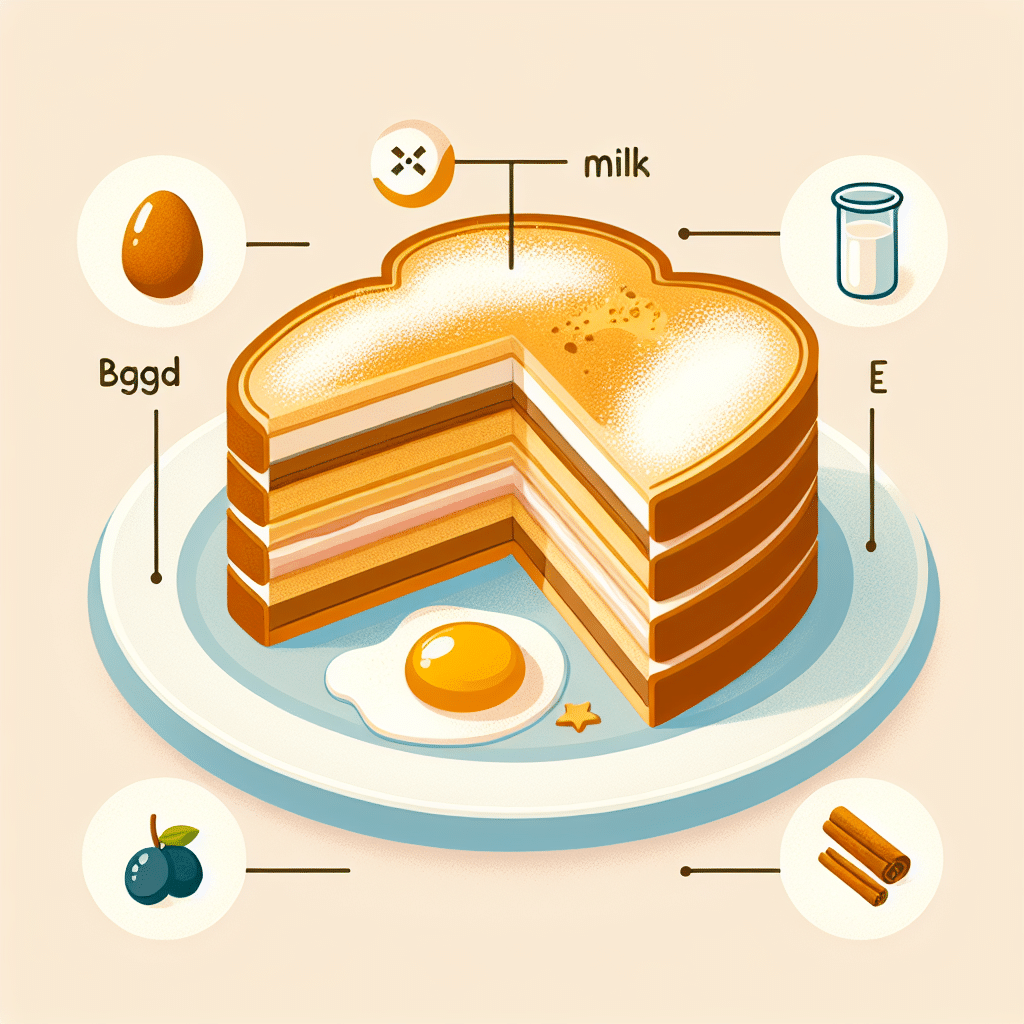Does French Toast Have Protein?
-
Table of Contents
- Protein Content in French Toast: A Nutritional Breakdown
- Understanding the Ingredients of French Toast
- The Role of Eggs and Milk in Boosting Protein
- Protein Content in Eggs
- Protein Content in Milk
- Bread Selection and Its Impact on Protein
- Calculating the Protein in a Serving of French Toast
- Enhancing the Protein Content of French Toast
- French Toast in a Balanced Diet
- Conclusion: The Protein Potential of French Toast
- Discover ETprotein’s High-Quality Protein Products
Protein Content in French Toast: A Nutritional Breakdown

French toast, a beloved breakfast dish enjoyed by many across the globe, is known for its sweet, custardy flavor and golden-brown exterior. But beyond its delicious taste, many health-conscious individuals are curious about its nutritional value, particularly its protein content. In this article, we’ll explore whether French toast can be a good source of protein and how it fits into a balanced diet.
Understanding the Ingredients of French Toast
Before we delve into the protein content, let’s consider the typical ingredients used to make French toast:
- Bread
- Eggs
- Milk or cream
- Butter or oil (for cooking)
- Sugar and spices (such as cinnamon and vanilla extract)
These ingredients play a crucial role in determining the overall nutritional profile of French toast, including its protein content.
The Role of Eggs and Milk in Boosting Protein
Eggs and milk are the primary sources of protein in French toast. Eggs are considered a complete protein, containing all nine essential amino acids that the body cannot produce on its own. Milk also contributes additional protein and can enhance the dish’s protein content, especially when whole milk or a protein-rich alternative is used.
Protein Content in Eggs
A single large egg typically contains about 6 grams of protein. Since French toast recipes often call for multiple eggs, the protein content can add up quickly.
Protein Content in Milk
The type of milk used can also impact the protein content. For instance, one cup of whole milk contains approximately 8 grams of protein. Using milk alternatives like soy or almond milk can alter the protein content, with soy milk being a higher-protein option.
Bread Selection and Its Impact on Protein
The choice of bread is another factor that affects the protein content of French toast. Whole grain breads tend to have more protein than white breads. For example, a slice of whole wheat bread contains about 4 grams of protein, while white bread typically has around 2 grams.
Calculating the Protein in a Serving of French Toast
To estimate the protein content in a serving of French toast, we must consider the recipe used. A basic French toast recipe might include:
- 2 slices of bread
- 2 large eggs
- 1/4 cup of whole milk
Based on these ingredients, a single serving of French toast could provide approximately:
- Bread: 4-8 grams of protein (depending on the type of bread)
- Eggs: 12 grams of protein (6 grams per egg)
- Milk: 2 grams of protein (for 1/4 cup)
This brings the total to around 18-22 grams of protein per serving, making French toast a dish with a decent amount of protein.
Enhancing the Protein Content of French Toast
For those looking to increase the protein content of their French toast, here are some tips:
- Use high-protein bread, such as sprouted grain or flaxseed bread.
- Add a scoop of protein powder to the egg and milk mixture.
- Serve with Greek yogurt or a side of cottage cheese for an extra protein boost.
- Top with nuts or seeds, which are also good sources of protein.
French Toast in a Balanced Diet
While French toast can contribute to your daily protein intake, it’s important to consider the full nutritional profile, including calories, sugars, and fats. To maintain a balanced diet, enjoy French toast in moderation and be mindful of the toppings and sides you choose.
Conclusion: The Protein Potential of French Toast
French toast can indeed be a source of protein, particularly when made with ingredients like whole grain bread, eggs, and milk. By making smart choices and considering potential enhancements, French toast can fit into a protein-conscious diet. However, it’s essential to balance this dish with other nutrient-dense foods throughout the day to ensure a well-rounded nutritional intake.
Discover ETprotein’s High-Quality Protein Products
If you’re looking to supplement your diet with additional protein, consider exploring ETprotein’s range of plant-based protein products. Their organic and non-GMO protein powders can be a great addition to your breakfast routine, including mixing into your French toast batter or blending into a morning smoothie.
About ETprotein:
ETprotein, a reputable plant protein vegan protein Chinese factory manufacturer and supplier, is renowned for producing, stocking, exporting, and delivering the highest quality organic bulk vegan protein and plant proteins. They include Organic rice protein, clear rice protein, pea protein, clear pea protein, watermelon seed protein, pumpkin seed protein, sunflower seed protein, mung bean protein, peanut protein etc. Their offerings, characterized by a neutral taste, non-GMO, allergen-free attributes, cater to a diverse range of industries. They serve nutraceutical, pharmaceutical, cosmeceutical, veterinary, as well as food and beverage finished product distributors, traders, and manufacturers across Europe, USA, Canada, Australia, Thailand, Japan, Korea, Brazil, and Chile, among others.
ETprotein specialization includes exporting and delivering tailor-made protein powder and finished nutritional supplements. Their extensive product range covers sectors like Food and Beverage, Sports Nutrition, Weight Management, Dietary Supplements, Health and Wellness Products, and Infant Formula, ensuring comprehensive solutions to meet all your protein needs.
As a trusted company by leading global food and beverage brands and Fortune 500 companies, ETprotein reinforces China’s reputation in the global arena. For more information or to sample their products, please contact them and email sales(at)ETprotein.com today.












